12 Apr2019
By JTE Insider

Check out the latest JTE Insider blog interview by the Journal of Teacher Education (JTE) editorial team. This blog is available to the public, and AACTE members have free access to the articles in the JTE online archives—just log in with your AACTE profile.
This author interview features Servet Altan’s insights from the article “Using Habits of Mind, Intelligent Behaviors, and Educational Theories to Create a Conceptual Framework for Developing Effective Teaching Disposition.” Altan co-authored the article with Jennie F. Lane, and Erskine Dottin. This article was published in the March/April 2019 issue of the Journal of Teacher Education.
Q1: What motivated you to pursue this particular research topic?
I have always admired talented teachers. Being a K-12 teacher myself, I have had the chance to work with a variety of teachers from different backgrounds and varying degrees of experience. I have always wondered what makes effective educators think and act the way they do. Furthermore, I was curious whether there are certain experiences that could help pre-service teachers develop desired characteristics. A responsibility of mine is teacher education and one of the aims of professional development is to understand teachers’ ways of knowing and acting. Additionally, it is worthwhile to know how these ways of knowing and acting reflect themselves in a teacher’s practice.
11 Apr2019
By Katrina Norfleet
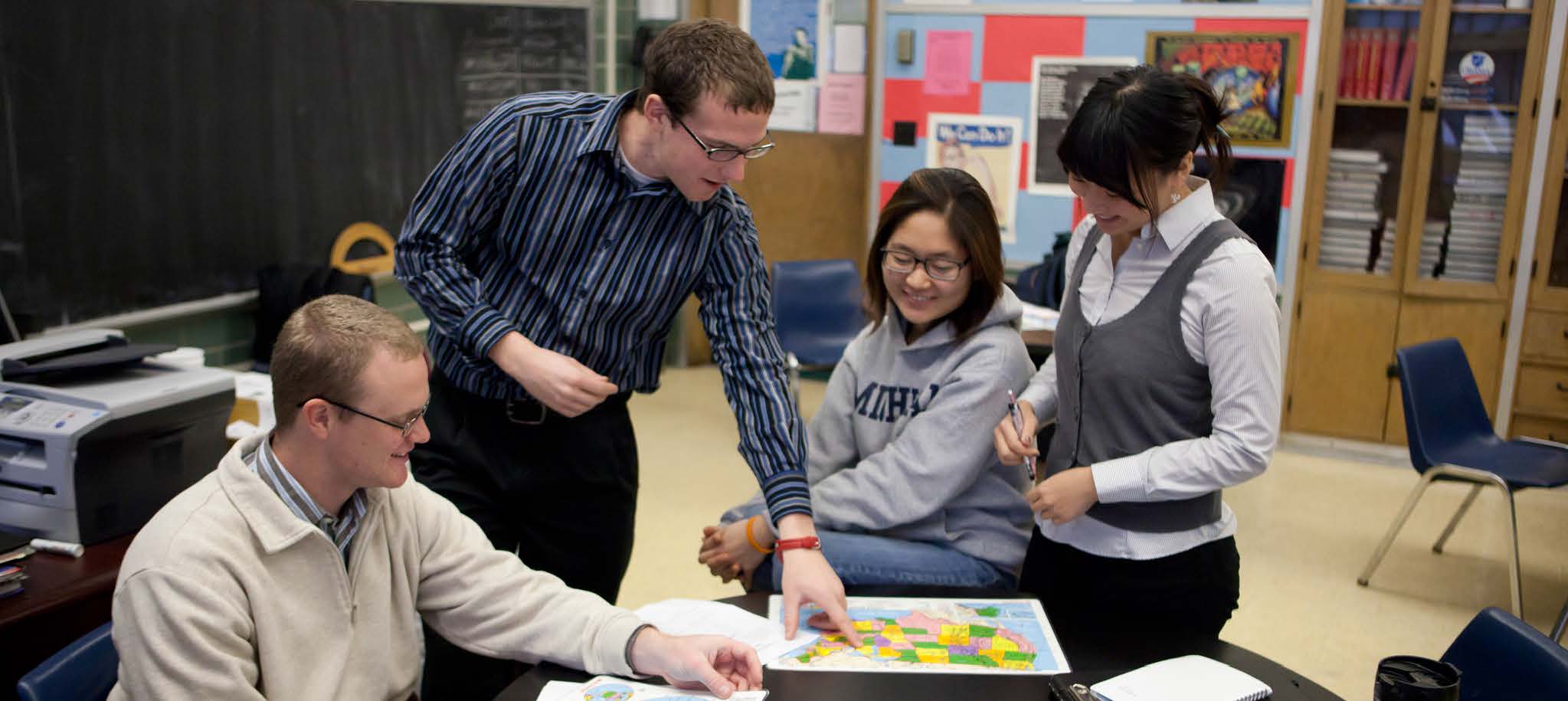
TeachingWorks at the University of Michigan is presenting its second annual Practice-Based Teacher Education Workshop, an opportunity for teacher educators to examine and try out practice-based teacher education pedagogies. The workshop, will take place on July 8-10, 2019 at the University of Michigan School of Education, in Ann Arbor, Michigan.
The presentations will include artifacts of practice such as videos and transcripts to create more time for teacher educators to practice teacher education pedagogies.
05 Apr2019
By Katrina Norfleet

In a recent podcast interview for JTE Insider blog, author Dan Goldhaber from the University of Washington offers an overview of his article, Evidence-Based Teacher Preparation: Policy Context and What We Know, during a talk with Graduate Assistant Mary Neville. The article was published in the March/April 2019 issue of the Journal of Teacher Education.
Goldhaber shares that the article is intended to do two thing: Describe what is known about teacher education and what happens once a teacher candidate becomes an in-service teacher, and secondly, to make observations about some of the structures that might be needed for state teacher preparation programs to learn more about what constitutes effective teaching.
05 Apr2019
By Brandon R.T. Frost
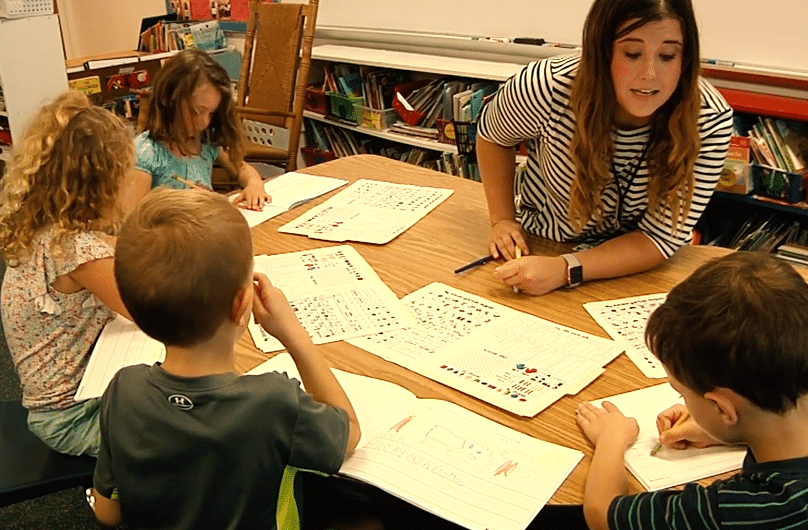
AACTE identified and documented two exemplary teacher preparation programs that ensure all of their candidates are ready to work with all students, including students with disabilities. We are pleased to feature a set of videos from each program documenting how they implement curriculum for dual certification (general education and special education) and feature extensive clinical preparation.
Bowling Green State University’s undergraduate Inclusive Early Childhood Program and Portland State University’s Secondary Dual Education Program support new and beginning teachers in teaching in inclusive classrooms. Both programs lead to certifications in general and special education. “These institutions ensure that all educators have the skills to work with students with disabilities in the 21st century,” said AACTE Consultant Jane West, “School districts scramble to hire these outstanding students, as they come with the mindset and the skillset to be effective with all students.”
05 Apr2019
By Deborah Koolbeck

The U.S. Department of Education has released its Notice of Inviting Applications for the Fiscal Year 2019 Teacher Quality Partnership (TQP) Grants in the Federal Register. TQP is the only federal initiative dedicated to strengthening and transforming educator preparation at institutions of higher education and to meet the workforce needs of high need school districts and schools.
02 Apr2019
By Katrina Norfleet
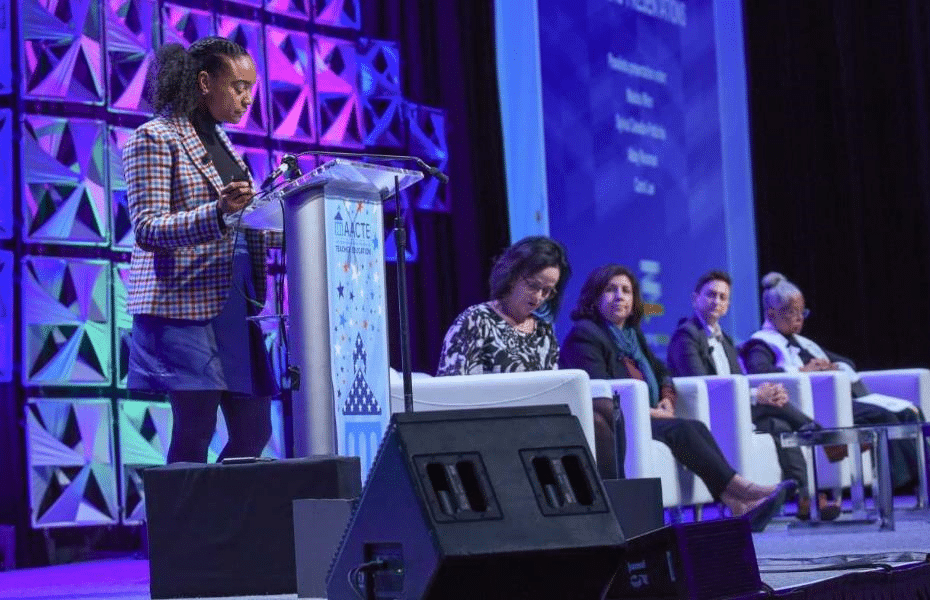
During the “Disrupting the Persistence of Oppression” Deeper Dive session, panelists explored the question: How does knowing content matter for disrupting the persistence of oppression? The panel discussion was moderated by Deborah Ball, director of TeachingWorks at the University of Michigan and included Maisha Winn, Chancellor’s Leadership Professor in the School of Education and co-director of the Transformative Justice in Education (TJE) Center at the University of California, Davis; Sylvia Celedon-Pattichis, senior associate dean for research and community engagement and professor of bilingual and mathematics education at the University of New Mexico; Abby Reisman, assistant professor of teacher education at the University of Pennsylvania; and Carol Lee, former Edwina S. Tarry Professor of Education, School of Education, of Social Policy and African-American Studies at Northwestern University.
Winn began the panel discussion with a scholarly presentation focused on restorative justice and shared a narrative framework she developed for teachers to consider when seeking justice in the school setting. The framework is based on four pedagogical stances: history matters, race matters, justice matters, and language matters. She presented the framework and shared her desire to add a fifth stance: futures matter.
02 Apr2019
By Katrina Norfleet
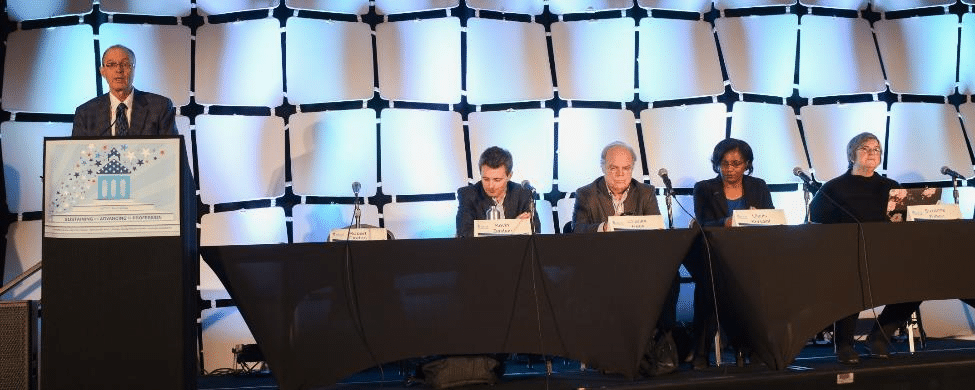
The “Data Systems” Deeper Dive session, held during the AACTE 2019 Annual Meeting examined the possibilities and challenges for using information and evidence-based research to improve teacher education programs. The discussion was led by moderator Robert Floden, dean of the College of Education at Michigan State University, and included four panelists: Kevin Bastian, senior research associate, University of North Carolina (UNC) and director, Teacher Quality Research Initiative Education Policy Initiative at Carolina (EPIC); Charles Peck, a professor of teacher education and special education at the University of Washington; Suzanne Wilson, Neag School of Educatin Endowed Professor of Teacher Education at the University of Connecticut (UConn); and Gladis Kersaint, dean, Neag School of Education at UConn.
The robust discussion opened with Bastian sharing the details of a two-pronged study conducted by EPIC that pairs student teaching data with workforce outcomes. He stated, “The problem we’re interested in addressing is how can programs take a mountain of performance assessment data and identify what we might call actionable evidence within it.”
26 Mar2019
By Katrina Norfleet
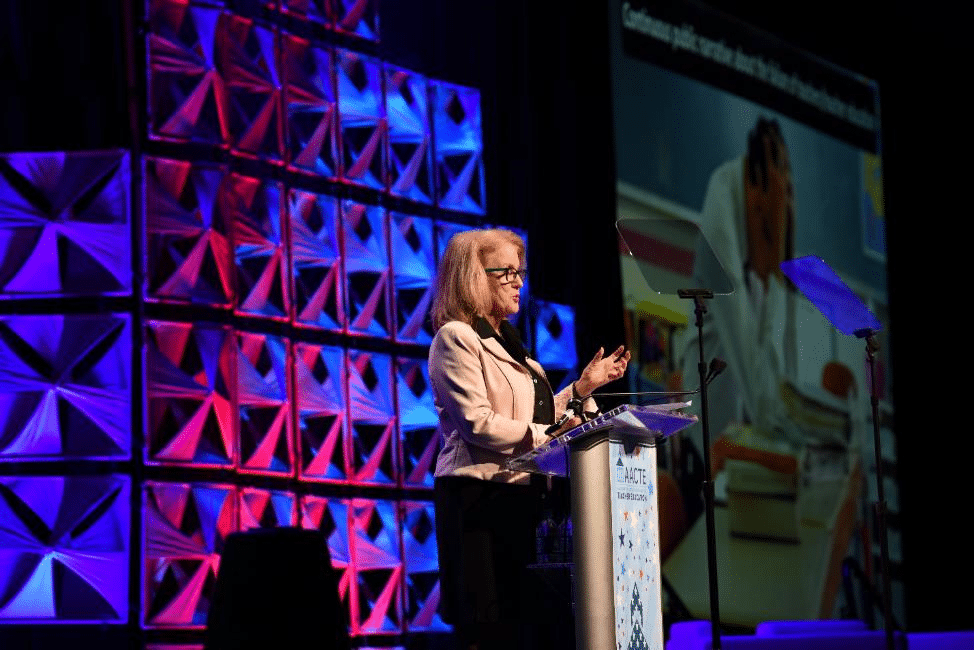
Opening keynote speakers Marilyn Cochran-Smith of Boston College and Marvin Lynn of Portland State University, explored the challenges with accountability in teacher education in a provocative discussion on Friday, February 22.
Cochran-Smith is the Cawthorne Professor of Teacher Education for Urban Schools in the Lynch School of Education at Boston College. A teacher educator for more than 40 years, she stressed that teacher educators are passionate about accountability for the learning and development of the teacher candidates they work with, as well as the students, families, and communities the future teachers will serve.
“I have never met a teacher educator who didn’t feel accountable and who didn’t want to be accountable for his/her work,” said Cochran-Smith. “The trouble with teacher education accountability is not with accountability itself; it’s what teacher education has been held accountable for.”
19 Feb2019
By Katrina Norfleet

Jacob Easley II, dean of the Graduate School of Education at Touro College, recently authored A Way Forward Toward Professionalizing Teacher Education: A Response to the AASCU Teacher Education Task Force Survey, a commentary published in the Educational Renaissance journal. In the paper, Easley reviews the recommendations resulting from the 2016 American Association of State Colleges and Universities (AASCU) Teacher Education Task Force survey. The survey was completed by member presidents, provosts, and their deans of education at public institutions of higher learning to better understand the state of the profession.
The results from the national AASCU survey yielded six recommendations for quality teacher education programs. Of the six, Easley categorizes the first four are as similar to the standards that inform national accreditation by the Council for the Accreditation of Educator Preparation (CAEP):
- Bolster clinical experiences
- Ensure strong university-school partnerships
- Step up recruitment into preparation programs
- Build agreements with community colleges
12 Feb2019
By Linda Minor
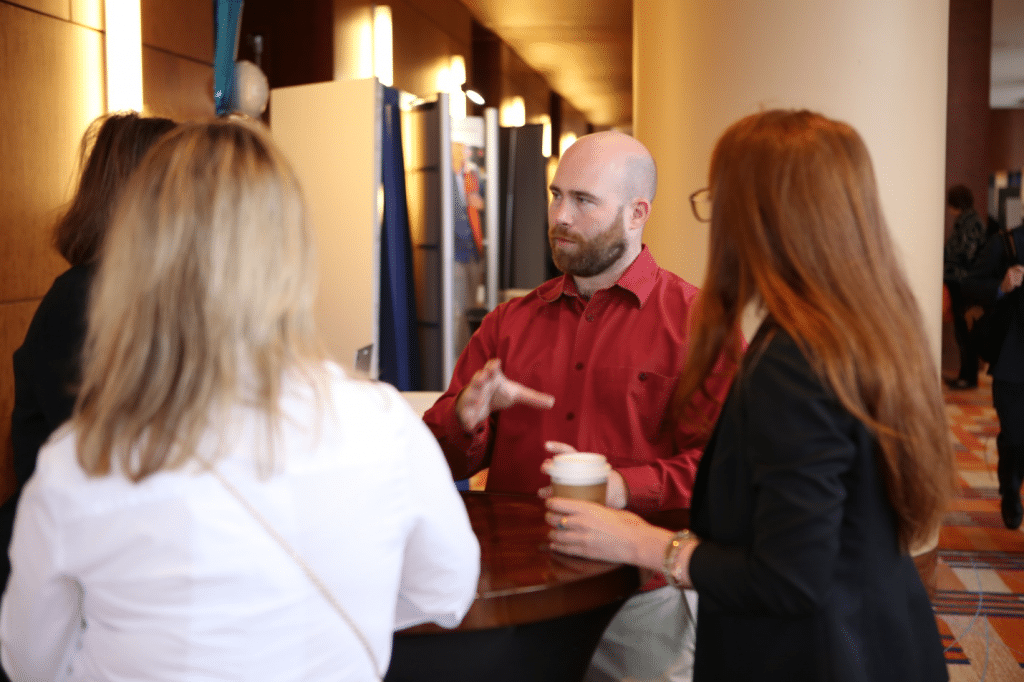
The AACTE Gallery will be offered again this year at the 2019 Annual Meeting in Louisville. It will feature mini presentations and a dedicated coffee and conversation space where Annual Meeting participants can chat with representatives from AACTE member and partner initiatives, as well as AACTE staff, to learn more about programs and opportunities of interest. The AACTE membership booth will also be located nearby, and staff will be on hand to share information and answer questions.
Come learn more about what’s been happening at AACTE this year! You can receive the latest updates on the AACTE Strategic Planning initiative, gain access to AACTE’s new research publication, Education Students and Diversity: A Review of New Evidence, and connect with AACTE members and partners for information about their innovative projects. For all of this and more, be sure to add the AACTE Gallery time blocks to your personalized 2019 Annual Meeting Online Event Planner schedule. The Gallery will offer opportunities to network while learning about promising innovations in educator preparation.
05 Feb2019
By Deborah Koolbeck
As the U.S. Department of Education is engaging in negotiated rulemaking on the TEACH grants, the Department announced that it is opening a process for reconsideration of conversion. TEACH grant recipients study to teach in a high-need field and commit to teaching in a high-need school in their chosen field for 4 years. Recipients have an 8-year window in which to complete these 4 years of service. If a TEACH grant recipient does not complete this service, the grant funds received convert to Direct Unsubsidized Federal Loan. For those TEACH grant recipients whose grant(s) were converted to loan(s) and who met or are meeting the TEACH grant service requirements, a reconsideration can be requested.
The Department shares the following on its webpage:
If you met or are meeting the TEACH Grant service requirements within the eight-year service obligation period, but had your grants converted to loans because you did not comply with the annual certification requirement, you can request reconsideration of those conversions.
31 Jan2019
By Beth Fornauf
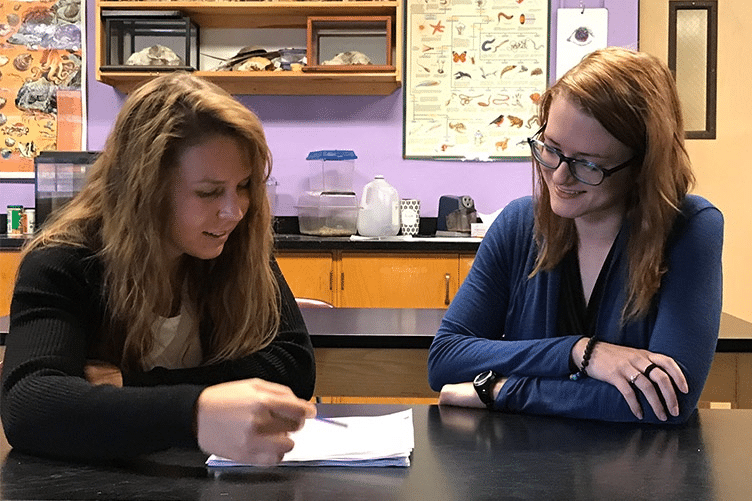
This article and photo originally appeared in UNH Today and are reprinted with permission.
When Kayla Croteau earned her master’s in secondary education from UNH in 2015, she never imagined that she was only three short years away from another teacher education experience — this time as a teaching mentor for the University of New Hampshire’s Teacher Residency for Rural Education (UNH-TRRE) program.
UNH-TRRE, designed to prepare elementary and secondary math and science teachers to work in rural, high-need New Hampshire schools, is working with its second cohort of future teachers. These UNH students, known as teaching residents, live, learn, teach and volunteer in rural New Hampshire communities over the course of the 15-month master’s program.
Croteau serves as a UNH-TRRE teaching mentor to Alexzandria Steiner, a native of St. Johnsbury, Vermont, and current teaching resident in the TRRE program. Steiner, who is seeking secondary certification in life sciences, works with Croteau at Groveton High School, one of the UNH-TRRE partnership schools in Coӧs County.
Teaching residents, embedded in the areas in which they will teach, make connections with local families and begin to identify assets and resources each rural community has to offer.
24 Jan2019
By Katrina Norfleet
Today, the Council of Chief State School Officers (CCSSO) announced four educators with diverse teaching styles and who teach different subjects as finalists for the 2019 National Teacher of the Year:
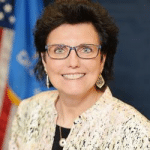 Donna Gradel, the 2019 Oklahoma Teacher of the Year, is a high school science teacher who empowers her students to discover ways they can improve their local environment, including helping their city to develop and implement sustainable solutions to improve the water quality and natural habitats of the city’s waterways. Learn more. Donna Gradel, the 2019 Oklahoma Teacher of the Year, is a high school science teacher who empowers her students to discover ways they can improve their local environment, including helping their city to develop and implement sustainable solutions to improve the water quality and natural habitats of the city’s waterways. Learn more. |
 Kelly Harper, the 2019 District of Columbia Teacher of the Year, is a 3rd grade teacher who leads her students to work on advocacy projects throughout the year, even going so far as meeting with members of Congress in the U.S. Capitol Building. Learn more. Kelly Harper, the 2019 District of Columbia Teacher of the Year, is a 3rd grade teacher who leads her students to work on advocacy projects throughout the year, even going so far as meeting with members of Congress in the U.S. Capitol Building. Learn more. |
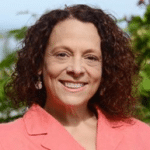 Danielle Riha, the 2019 Alaska Teacher of the Year, is a middle school teacher who has learned from Yup’ik Elders how to incorporate indigenous knowledge that she applies in a culturally infused curriculum with her students at the Alaska Native Cultural Charter School, which she helped open to increase opportunities for students to connect to their identity and community. Learn more. Danielle Riha, the 2019 Alaska Teacher of the Year, is a middle school teacher who has learned from Yup’ik Elders how to incorporate indigenous knowledge that she applies in a culturally infused curriculum with her students at the Alaska Native Cultural Charter School, which she helped open to increase opportunities for students to connect to their identity and community. Learn more. |
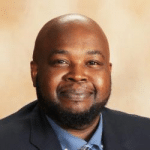 Rodney Robinson, the 2019 Virginia Teacher of the Year, who teaches social studies in a juvenile detention facility, creates a positive school culture by empowering his students— many of whom have experienced trauma—to become civically-minded social advocates who use their skills and voices to affect physical and policy changes at their school. Learn more. Rodney Robinson, the 2019 Virginia Teacher of the Year, who teaches social studies in a juvenile detention facility, creates a positive school culture by empowering his students— many of whom have experienced trauma—to become civically-minded social advocates who use their skills and voices to affect physical and policy changes at their school. Learn more. |
16 Jan2019
By Sara McAlister
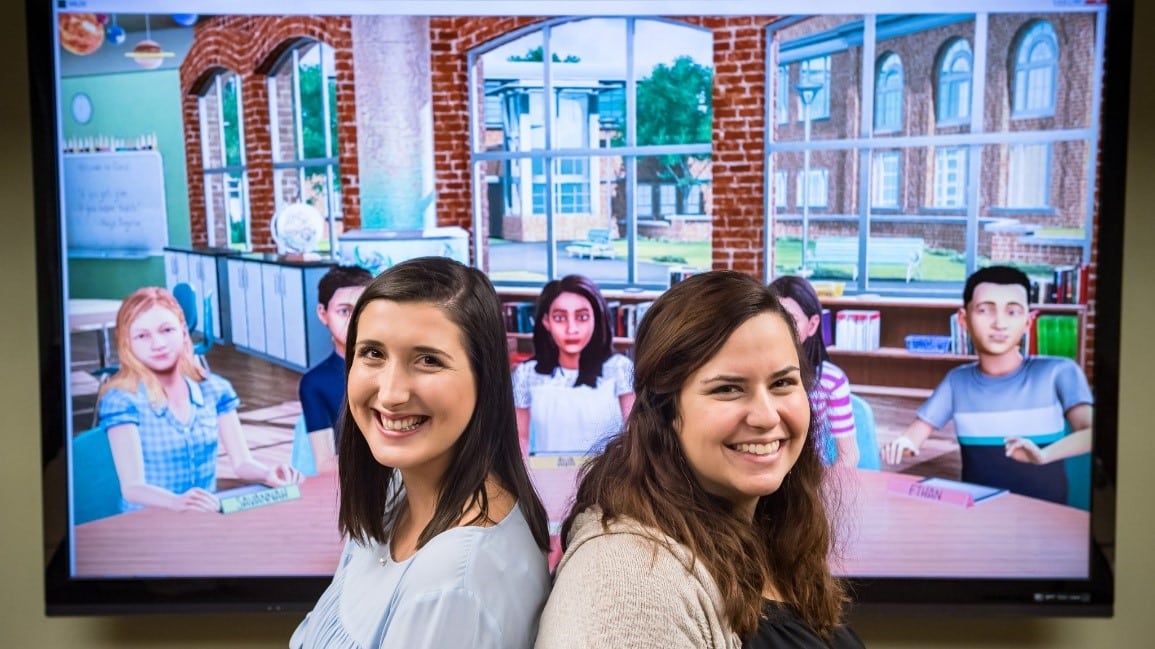
This article and photo originally appeared on the University of Mississippi Ole Miss News website and is reprinted with permission.
Meet Ava and Dev. They are in middle school. Ava is quick-thinking and decisive and likes to be challenged with new ideas and concepts. Dev is a rule-follower who is self-driven with high standards.
Ava and Dev are not your average students. In fact, they are not even real students at all. They are avatars in a virtual classroom at the University of Mississippi School of Education, where education majors are gaining valuable, hands-on teaching experience even before their student teaching.
Mursion, originally called TeachLive, is a cutting-edge technology that delivers customized virtual reality training to provide professional challenges that exist in the job every day.
Developed at the University of Central Florida, Mursion is being used at more than 85 campuses in the United States. Since 2012, Mursion has grown at UM. Last school year, 800 students in the School of Education practiced with the system and are required to use it at least twice as part of their coursework before graduating.
12 Dec2018
By Conra D. Gist
The Third Annual Diversified Teaching Workforce (DTW) Institute will convene on February 21, 2019 at the AACTE Annual Meeting in Louisville, KY. The Institute will convene a group of national leaders at colleges and universities across the United States to spotlight and explore innovative efforts for addressing racial/ethnic teacher diversity across five key areas: recruitment and retention, teacher preparation, mentorship, induction and professional development, and advocacy. Recognizing the need to create spaces within professional networks to discuss and unpack the challenges and possibilities for increasing teacher diversity, the institute offers presentations on current research, opportunities to converse in working groups, and panel sessions focused on best practices from teacher preparation and teacher diversity pipeline leaders. A brief overview of potential panels at the Institute include:


















 Donna Gradel, the 2019 Oklahoma Teacher of the Year, is a high school science teacher who empowers her students to discover ways they can improve their local environment, including helping their city to develop and implement sustainable solutions to improve the water quality and natural habitats of the city’s waterways.
Donna Gradel, the 2019 Oklahoma Teacher of the Year, is a high school science teacher who empowers her students to discover ways they can improve their local environment, including helping their city to develop and implement sustainable solutions to improve the water quality and natural habitats of the city’s waterways.  Kelly Harper, the 2019 District of Columbia Teacher of the Year, is a 3rd grade teacher who leads her students to work on advocacy projects throughout the year, even going so far as meeting with members of Congress in the U.S. Capitol Building.
Kelly Harper, the 2019 District of Columbia Teacher of the Year, is a 3rd grade teacher who leads her students to work on advocacy projects throughout the year, even going so far as meeting with members of Congress in the U.S. Capitol Building.  Danielle Riha, the 2019 Alaska Teacher of the Year, is a middle school teacher who has learned from Yup’ik Elders how to incorporate indigenous knowledge that she applies in a culturally infused curriculum with her students at the Alaska Native Cultural Charter School, which she helped open to increase opportunities for students to connect to their identity and community.
Danielle Riha, the 2019 Alaska Teacher of the Year, is a middle school teacher who has learned from Yup’ik Elders how to incorporate indigenous knowledge that she applies in a culturally infused curriculum with her students at the Alaska Native Cultural Charter School, which she helped open to increase opportunities for students to connect to their identity and community.  Rodney Robinson, the 2019 Virginia Teacher of the Year, who teaches social studies in a juvenile detention facility, creates a positive school culture by empowering his students— many of whom have experienced trauma—to become civically-minded social advocates who use their skills and voices to affect physical and policy changes at their school.
Rodney Robinson, the 2019 Virginia Teacher of the Year, who teaches social studies in a juvenile detention facility, creates a positive school culture by empowering his students— many of whom have experienced trauma—to become civically-minded social advocates who use their skills and voices to affect physical and policy changes at their school. 